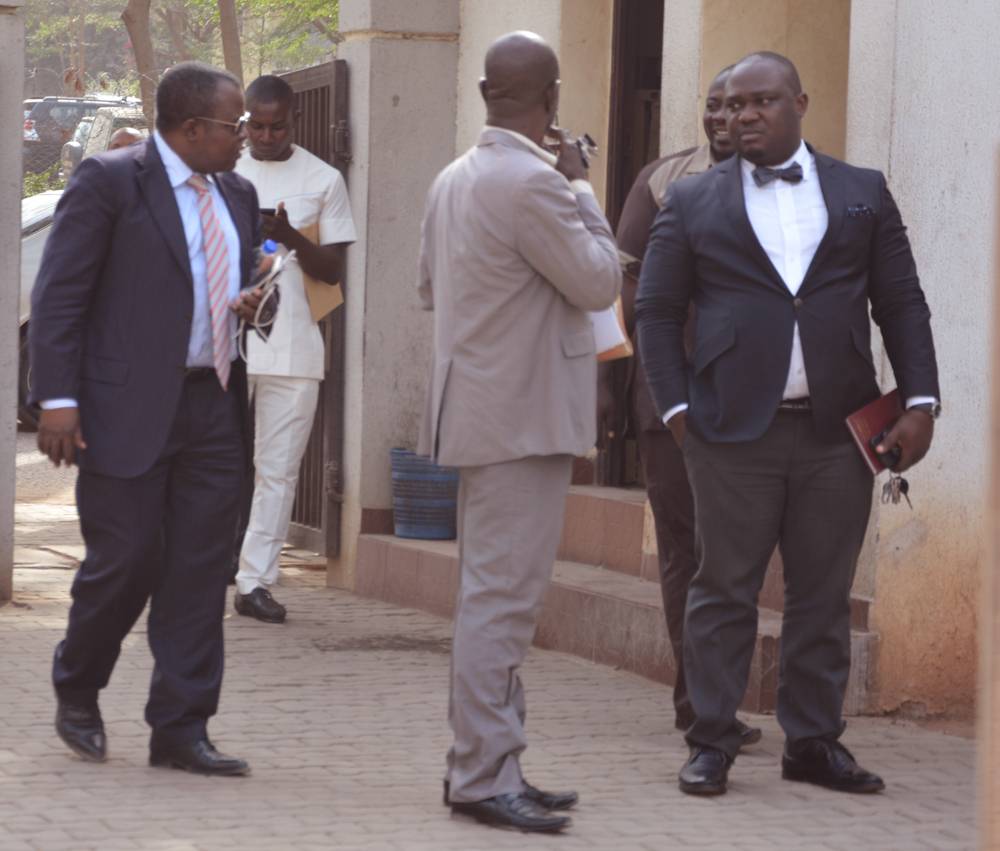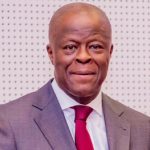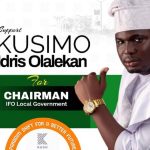Feature/OPED
Missing Charity Aiyedogbon: One Year After


Destiny Ugorji
It is exactly one year that an Abuja-based business woman, Charity Aiyedgbon was declared missing by her Facebook friends. Charity, popularly known as ‘Chacha’, is said to have gone missing since the 9th of May, 2016 and family, friends and Security Agencies said to be working to unravel the mystery behind her sudden disappearance.
Speculations on the possible whereabouts of the 44-year-old mother of four, also known as Deepdeal Chacha Dehammer were rife.
First, a Lagos-based lawyer, Emeka Ugwuonye said he had overwhelming evidence that the missing Charity was dead, accusing her erstwhile husband, David Aiyedogbon of having a hand in her disappearance; an allegation he posted on his Facebook group, The Due Process Advocates.
Reacting to Ugwuonye’s allegation, former husband of the missing woman, Mr. David Aiyedogbon washed his hands over the disappearance of the lady and wrote his accuser, through his lawyers, demanding an apology, failure which he would seek legal redress.
The letter titled: “Defamation of the character of David Aiyedogbon; demand for apology,” signed by his lawyer, Obiora Illo esq (Ogbulafor Chambers) and made available to newsmen, expressly states: “It is our instruction to demand an unqualified apology from you to our client through our chambers for the defamatory publications you have made of and concerning our client.”
Also, addressing newsmen in Abuja, Mr. Aiyedogbon urged the Inspector General of Police, Ibrahim Idris to investigate the allegation against him, describing it as “cruel, criminal and untrue”, stressing that his estranged wife Charity left their matrimonial home on the 28th of May, 2014, noting that since then, he had neither heard from her, nor had any dealings with her.
While the controversy lasted, a Civil Society Organisation, Coalition against Crime (CAC) called on Nigeria’s Inspector General of Police, Ibrahim Idris to arrest Lagos-based lawyer, Ugwuonye to explain his role in the disappearance of Charity Aiyedogbon.
National Coordinator of the group, Harrison Pepple, made the call while addressing newsmen in Abuja, arguing that Mr. Ugwuonye had some questions to answer.
In a Petition to the Inspector General of Police, the group quoted Mr. Ugwuonye as saying: “…Charity Aiyedogbon is said to have been missing since the 11th of May, 2016 and one Emeka Ugwuonye claims he has evidence that the woman is dead and was murdered. He also posted a photograph of a dead person, part of whose body was dismembered. How can Police be looking for a missing person and someone says he has a clue and he has not been invited or arrested.”?
Following the intervention by the Civil Society Organisation, the Police eventually arrested Mr. Ugwuonye and later released him on bail, after questioning, while investigations continued.
Several developments aided Police investigations. First, those believed to be close to Chacha are quoted as saying that she went missing on the 9th of May, 2016, but her lawyer, Barrister Nsikak Udoh, handling a suit filed at the Federal High Court, Lokoja on 29th April, 2016 against 29 respondents, including her biological children and former husband, claimed she (Chacha) came to his house on the 18th of May, 2016 (eight days after her purported disappearance) and one of his staff accompanied her to Federal High Court, to sign and depose to an affidavit in support of the ex-parte motion filed along with the case. How could someone who was declared missing on the 9th of May reappear on the 18th and then disappear again?
Today, it has been established that Chacha’s signature was forged; as the lawyer, Barrister Nsikak Udo has recanted. He says he did not see Chacha, as earlier claimed. He confessed to the Police that he forged Charity’s signature in an affidavit he filed in court. Apparently, Charity was not behind the filing of the suit, but her lawyer, Barrister Nsikak Udoh. He therefore lied on oath. Both himself and the Commissioner for oaths in the Federal High Court Abuja jurisdiction risk being prosecuted by the Police for forgery and perjury.
Another puzzle is that a corpse, said to have been dismembered beyond identification was allegedly seen in Abuja on the 12th of May and Mr. Ugwuonye claimed it was Chacha’s body. Till date, who has identified the corpse as that of Chacha? Impeccable sources say a DNA test conducted on the body revealed otherwise. Children of the missing woman have also chorused on several platforms that their mother was NOT dead. They have also stated that the displayed corpse is not that of their mother. The missing woman also has siblings and parents who have been going about their normal businesses and have neither said their sister was missing, dead, nor joined in the search for her.
The missing Chacha has a case of forgery that is yet to be concluded. A suit instituted in a High Court of the Federal Capital Territory (FCT High Court 8) on the 14th of March, 2016, with suit number CV/1231/16, between Messrs Chibuzor Ogugua and Chigozie Eme (plaintiffs) and Mrs. Charity Aiyedogbon (defendant), made eight prayers to the Court. The last prayer reads: “an order of the Honourable Court directing the defendant to pay the plaintiffs the sum of 200,000,000.00 (Two Hundred Million Naira) as damages for the losses suffered on the ground of the unauthorized and fabricated Valuation Report by the defendant.”Could she have disappeared to frustrate the Suit or evade justice?
In the last one year, a lot has happened. The law enforcement agencies and private investigators have worked very hard to unravel the mystery behind the disappearance of Mrs. Charity Aiyedogbon, aka Chacha Dehammer. Cases have been instituted and some already decided.
Some friends of Chacha, believed to have earlier raised the alarm recanted. They are said to be at war with Emeka Ugwuonye, who said he was briefed by same Chacha’s friends on the matter. They engaged in war of words on Facebook. One of them, Pamela Nwansoh allegedly confronted Mr. Ugwuonye in a Police premises in Abuja over an obvious sense of disenchantment with his activities, alleging extortion of members of the public (in the name of looking for Chacha) using his Facebook Group, the Due Process Advocates (DPA). Ugwuonye had, via a post on the group, solicited financial contributions for his trip to Abuja to respond to Police invitation to explain himself over the case of the missing Chacha.
One of the ladies said to be involved in the search for Chacha, Viola Ifeyinwa Okolie, on the 14th of July, 2016, also made a worrisome post on her Facebook wall, expressing disenchantment with Mr. Ugwuonye’s antics.
Also in a post on The Due Process Advocates on the 17th of July, 2016, Ugwuonye attacked Viola Okolie, making spurious allegations. The post was titled: “How the search for Chacha took strange turns and her friends turn out not to be friends after all.” The drama continued.
But, how did Emeka Ugwuonye get involved in this matter? Was he really in America when the incident happened, as he claimed? Available records suggest otherwise.
Barrister Ugwuonye claimed to have been in the United States of America as at the time of Chacha’s disappearance and only came into Nigeria in June, 2016, after being briefed to handle the matter, but his call log betrayed him, showing that he was in Abuja on the 10th, 11th and 12th of May, 2016; same time Chacha is said to have got missing. Information from private investigators and telecommunication service providers revealed that he made calls around Jabi area of Abuja, up till midnight same 10th and 11th and departed Abuja on the 12th of May, 2016. When confronted by the Police in Abuja with evidence of his movement, he owned up.
Three key suspects earlier arrested by the Police in connection with Chacha’s disappearance were said to have been released at his instance. He claimed at the FCT Police Hqrs that they were his clients; but when brought face to face with Mr. Ugwuonye, they denied all his claims, saying they neither briefed him nor identified any corpse to him as that of Chacha.
As at today, Police sources reveal that Mr. Ugwuonye has not provided any evidence to substantiate his claims. The only person he claims showed and identified the corpse as that of missing Chacha (Jo) denied him.
Today, Chacha’s car has been recovered. Two of her handsets have also been recovered. Is it a coincidence that he (Ugwuonye) has been questioned more than thrice by the Police in Chacha’s case?
The first puzzle is solved, with the admission by one of Chacha’s lawyers, Barrister Nsikak Udo that Chacha’s signature was forged. He admitted that he lied on oath and his fate shall be determined by the laws of the land soon.
Second, Chacha’s last Facebook post before she ‘went missing’ shows that she sat on the passenger’s seat of her car. That was the last she posted on Facebook, using that particular User ID- Deepdealdehammer. The question of who drove the car may have also been addressed.
Her car has been recovered, following a tip-off by one of the suspects that were in Police custody, IK Ezeugo. IK never opened up until Police arrested one of Jekwu’s friends, who now gave the lead, indicating that he (IK) personally drove the vehicle to the place where it was parked. His (Ik’s) younger brother, identified as Paul Chukwujekwu Ezeugo (still at large) is believed to have been in custody of the vehicle. He (Chukwujekwu) is also believed to have driven the missing woman on that last trip. The car was found in Enugu State by the Police, in the residence of one Uche, with its Plate Number and particulars already changed.
Again, Chacha’s two handsets have been recovered. One of them, a Nokia handset, is said to have been found with Chukwujekwu’s biological mother, Mrs. Ezeugo. The second handset (a Samsung phone) was recovered from one Augustine, who claimed that one Odinaka, Chukwujekwu’s friend and phone repairer sold it to him for Twenty Five Thousand Naira. The proceeds, according to Odinaka, were handed over to Chukwujekwu. Just like the vehicle, the both handsets were found in Enugu. Chukwujekwu is still at large.
Why is it that almost all the persons arrested/suspected so far in connection with Chacha’s case are from Enugu State? Precisely, six suspects so far arrested in the case are from Enugu State. Emeka Ugwuonye is from Enugu and Chacha’s car and handsets were found in Enugu. Chacha’s maternal home is Enugu. In fact, Paul Chukwujekwu Ezeugo and the missing Chacha’s mother are both from Oba-Nsukka, in Enugu State.
Mr Ugwuonye’s relationship with one of the prime suspects, Chukwujekwu Ezeugo is suspicious and his call log points in the same direction. He is also suspected to have aided his escape, as, according to Police sources, the day he (Jekwu) was to be arrested, Ugwuonye personally called the Police, promising to produce him, only to revert 24hours later, telling the Police that he had escaped.
Understanding how bad the matter was getting, Ugwuonye at a point, announced his withdrawal from Chacha’s case, a move Police sources described as diversionary, since he is already a suspect in the case.
David Aiyedogbon fights back
Following his refusal to apologize, ex-husband of the missing woman, Mr. David Aiyedogbon dragged Lagos- based Lawyer, Emeka Ugwuonye to the Nigerian Bar Association (NBA) over what he described as unprofessional publications against his person.
A letter dated 22nd August, 2016, captioned: “Petition against Emeka Ugwuonye for Unprofessional Publications and False Allegations”, addressed to the General Secretary of the Nigerian Bar Association (NBA), urged the professional body to investigate the matter and invoke appropriate disciplinary actions against the lawyer. Till date, Mr. Ugwuonye has not responded to a query issued him by the NBA, following Aiyedogbon’s petition.
Also, for falsely accusing him of, having a hand in the sudden disappearance of his estranged wife, Charity Aiyedogbon, Mr. Aiyedogbon instituted a defamation of character suit of Ten Billion Naira (N10b) against Lagos Lawyer, Emeka Ephraim Ugwuonye.
The Suit, with number CV/2750/16, between David Aiyedogbon (Plaintiff) and Emeka Ugwuonye (Defendant) on defamation of character, before Justice Peter Kekemeke of Federal Capital Territory (FCT) High Court 14, Apo Abuja; also prays that the defendant be ordered to pay the cost of the suit.
The Plaintiff is also seeking an order of perpetual injunction “restraining the Defendant, his Agents, Privies, Associates or whosoever called” from making further defamatory publications against him and his family members. The matter is adjourned to Thursday, 18th May, 2017.
Sources also reveal that Mr. Aiyedogbon’s lawyer, Tony Ogbulafor may have also filed a personal suit against Mr. Ugwuonye for wrongly accusing him of giving a bribe (in an envelope) to a Police man to detain him.
Police sources also reveal that, while some persons have already been charged to Court (awaiting trial) for their roles in the disappearance of Charity Aiyedogbon, others that have questions to answer will also be charged soon, to explain their roles in the controversy.
Meanwhile, the suit purportedly filed by Chacha at the Federal High Court, Lokoja, wherein Barrister Nsikak Udoh represented her has been decided in favour of David Aiyedogbon.
One year after, Chacha’s case is getting more interesting. We await the explanation of those in possession of Chacha’s car and handsets on their roles, accomplices and her whereabouts.
While we wait patiently for the unfolding drama, the Police must realise that Nigerians and indeed the world are watching. They must address Nigerians now on the extent of their investigation.
Again, Police must expedite actions in charging suspects to court. Waiting endlessly on the matter does not help the course of justice.
One is still at a loss as to why the prime suspect in the matter, Jekwu is yet to be declared wanted; and why Charity Aiyedogbon has not been declared missing. The Police must clear the air now.
As the whereabouts of Charity Aiyedogbon remain unknown, I join millions of Nigerians to demand that Emeka Ugwuonye provides his “overwhelming evidence” regarding what happened to Chacha or get prosecuted for false information and criminal conspiracy.
Feature/OPED
Tax, Inflation, and Still Broke: The Economic Divide

By Chiamaka Happiness Madueke
What’s worse than being taxed? Being taxed invisibly and twice.
When the government tightens monetary policy; hikes taxes, and removes subsidies, all in one breath, you would expect the economy to breathe easier. But in Nigeria, the air seems to feel thinner.
Over the past few years, Nigeria has embraced a series of bold economic reforms; floating the Naira, removing fuel subsidies, and pushing revenue generation targets. These actions can generally signal fiscal discipline and long-term growth.
For example, the Nigerian government reportedly saved N3.6 trillion from subsidy removal in just the second half of 2023, but beneath the policy headlines lies a quieter story: one where debt servicing, inflation, taxation, and informal charges collide to create an invisible burden on everyday transactions.
Yes, between visible taxes, invisible inflation, and unofficial levies collected by everyone and no one, low-income Nigerians allegedly seem trapped in a system that squeezes them from every direction.
Let me digress for a second, but I’ll bring it back in a bit, I promise.
At first glance, taxation and inflation may seem like two separate forces: one a fiscal tool, the other a macroeconomic consequence. But in Nigeria’s current climate, they’re colliding in real time, shaping the daily experience of citizens and businesses alike.
The Taxation Puzzle
Nigeria’s tax-to-GDP ratio remains among the lowest globally; just 10.86 per cent as of 2022, according to the Federal Inland Revenue Service (FIRS). That’s well below the 15–25 per cent global average, and even lower than the African average. Yet, the informal economy, which contributes nearly 58 per cent to GDP, bears much of the untracked tax burden through local levies and fees.
This mismatch reveals a chronic revenue problem and this challenge becomes even more critical when you consider the growing cost of debt. But borrowing isn’t inherently bad; in fact, strategic debt can stimulate growth if channelled into things like power, roads, manufacturing, or digital infrastructure, projects that have a way of boosting the economy.
In an interview with Arise News, the CEO of Sterling Bank, Mr Abubakar Suleiman, said, “If you are not collecting enough revenue to service a debt, that is a problem”. But it is even worse when you’re not using that debt for productive, economic reasons; that’s a structural problem.
Then I ran the numbers, in 2022, Nigeria reportedly spent a large per cent of its revenue on debt servicing. That means most of what we earn do not go to schools, hospitals, or industrial development, they go to paying back interest. That’s like living on a credit card and using it to buy lunch, not build a business that would make profit.
In 2023, 64.5 per cent of the federal government’s total revenue was used for debt servicing, according to a BusinessDay analysis of data from the Budget Office.
Although this was higher than the 48.5 per cent in 2022, it was still less than the 71.8 per cent in 2021. In 2023, actual revenue was N11.88 trillion, slightly above the predicted N11.05 trillion, while actual debt service costs were N7.66 trillion, 16.9 per cent higher than the projected N6.56 trillion.
In comparison, Nigeria’s revenue for the fiscal year 2022 was N7.76 trillion, falling short of the N9.97 trillion projection. The fact that debt servicing increased to N3.76 trillion from an anticipated N3.69 trillion in spite of this shortfall shows that debt obligations are an unavoidable burden even in cases where revenues are below budget.
This pattern emphasizes how little financial flexibility the government has, particularly when it comes to financing infrastructure or social projects.
By September 30, 2024, Nigeria’s total public debt had climbed to N142.3 trillion, reflecting a N8.02 trillion increase from N134.3 trillion in June 2024. This 5.97 per cent rise was attributed not only to additional borrowing but also to the depreciation of the Naira, which significantly inflated the naira value of external debt.
The surge in debt has not been matched by a proportional increase in productive investment, raising questions about the sustainability and strategic intent of government borrowing.
Adding to the concern, the total debt service cost reached an estimated N3.57 trillion in just the third quarter of 2024 alone.
With limited income from formal taxation, the government allegedly struggles to adequately fund infrastructure, education, healthcare, and essential services.
In response, efforts are underway to:
- Widen the tax base by formalizing more of the informal sector,
- Improve compliance through digital platforms and data integration,
- Rationalize outdated and inefficient tax incentives.
However, increasing tax pressure and its enforcement especially now can be politically unpopular and economically dangerous. Why? Because inflation is already eating through household budgets.
The Inflation Squeeze
Nigeria’s inflation rate has remained stubbornly high, largely driven by the rising cost of food prices, currency depreciation, removal of fuel subsidy and Monetary policies like floating the Naira.
As of early 2024, inflation was between 28–30 per cent, with core inflation also climbing. This diminishes buying power, worsens poverty, and increases the expenses of conducting business.
Essentially, inflation operates as an unnoticed tax, one that hits the vulnerable the hardest, especially low and middle-income earners whose wages aren’t keeping pace.
One key statement caught my attention in recent times, “We must choose between Taxation or Inflation.”
At first, that sounded a bit extreme. But the more I thought about it, the more it made sense.
Taxation is visible, structured, and can be progressive. Inflation, on the other hand, is unpredictable and regressive, a silent thief that spares no one, but affects the poor more because they have less to spend.
For low-income Nigerians, a controlled tax system paired with targeted public investment, might be more manageable than the current wave of inflation that raises the price of garri, beans, and palm oil every other week for Aunty Onyeka and thousands like her.
The “Other” Taxes We Don’t Talk About
But this brings me to a creeping question. What about the unofficial taxes? The ones no one talks about?
How are the indirect taxes collected from public transporters by local levy collectors accounted for? The levies collected from Mama Basirat who hawks around Oshodi market selling cooked food has watched the price of palm oil jump three times in six months while still paying a N500 “market ticket” every morning before selling a single plate of rice. Who tracks that revenue?
Yes, the most shocking revelation for me has been realizing that even hawkers – hawkers, who sell sachet water or fruit walking down roads and the street corners are being taxed in some areas.
Or rather, charged daily levies by local agents. And no, I am not condemning that, just that this issue raises some serious questions in my head:
- Where does this money go?
- Is it remitted to any official government account?
- What public service is being provided in return?
If we zoom out, the irony becomes obvious. We keep saying Nigeria’s tax-to-GDP ratio is too low. Yet, many of the poorest Nigerians are already being taxed, just not in ways that show up in FIRS data.
They’re taxed by local councils, market unions, transport associations, and sometimes even self-appointed local revenue agents. Is this form of taxation? It’s neither progressive nor transparent, nor accountable.
So, What Are We Really Talking About?
When we push for increasing tax revenue, we often picture corporate profits or high-net-worth individuals. But the reality? Many of the levies, fees, and informal charges disproportionately hit those in the informal sector; drivers, traders, hawkers, the same people inflation is already punishing the most. It’s a vicious cycle.
Drivers hike transport fares to meet the levies. Hawkers bump up prices to stay afloat and somewhere in the middle, people start paying more for food, transport, and basic needs. So, yes, taxation may be more beneficial than inflation but only if it’s fair, formal, and genuinely
used to improve lives. Until then, we seem to remain stuck in a system where the poorest pay the most, twice over: Once through rising prices that their income can barely meet, and again through levies that don’t even show up in the books. The informal sector is already contributing indirectly through taxes and levies. But where that money goes, that’s the real mystery.
The discussion about taxation in Nigeria must expand beyond the official tax system to consider these informal levies. And that, more than anything, is what really got my thinking juices flowing.
Maybe the conversation shouldn’t just be about taxing more, but taxing better, and ensuring value for those already overburdened.
Feature/OPED
How Nigerian Businesses Can Leverage Agentic AI for Growth and Efficiency
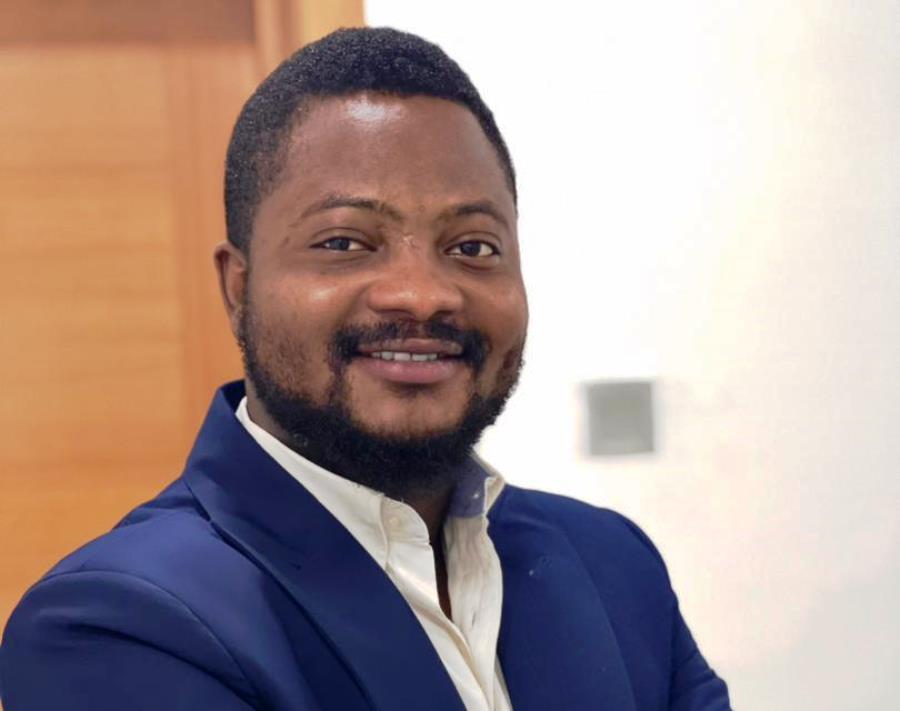
By Kehinde Ogundare
Artificial Intelligence (AI) is revolutionising industries globally, and Nigeria is no exception to this trend. Businesses in Nigeria are increasingly exploring AI-driven automation to enhance efficiency, drive innovation, and remain competitive. However, AI adoption remains relatively low, as many businesses struggle to identify practical use cases that deliver measurable ROI.
A key emerging trend addressing this challenge is Agentic AI–a more advanced form of AI that enables businesses to create autonomous digital agents capable of handling complex tasks, optimising workflows, and improving decision-making. Unlike traditional AI models that react to user inputs, Agentic AI proactively learns, makes decisions, and automates entire processes, making it a game-changer for businesses looking to scale productivity.
The Rise of Agentic AI in Business
Globally, AI adoption has grown, but many businesses still hesitate due to concerns over cost, implementation complexity, and lack of clear ROI. According to McKinsey & Company, organisations that have successfully integrated AI-driven automation report efficiency improvements ranging from 20–30%. The key to unlocking AI’s full potential lies in specialised AI models designed for specific business functions–precisely where Agentic AI excels.
For example, in customer service, AI-powered agents can automate repetitive tasks, resolve issues faster, and enhance customer satisfaction. Studies have shown that nearly 88% of Nigerian consumers consider customer experience critical to their purchasing decisions. Agentic AI can help businesses meet these expectations by providing instant, personalised support.
In sales, AI-driven Sales Development Representative (SDR) Agent can analyse customer interactions, identify sales opportunities, and suggest targeted outreach strategies. Research highlights that businesses using AI in sales automation experience increase conversion rates and higher sales productivity.
Similarly, Human Resources (HR) operations are being transformed by AI-powered automation. Tasks such as leave management, employee onboarding, and performance tracking can be effectively handled by Agentic AI, allowing HR professionals to focus on strategic employment engagement. Deloitte indicates that AI-powered HR automation reduces administrative workload significantly, enhancing employee satisfaction and operational efficiency.
In IT operations, AI-powered Help Desk Agents streamline troubleshooting, diagnose issues, and execute quick fixes. This reduces downtime and significantly improves operational continuity and productivity.
How Zoho is Innovating with Agentic AI
At Zoho, we recognise the potential of Agentic AI and have developed Zia Agents for specific use cases within various products. Unlike generic AI models, Zia Agents provide contextual intelligence, real-time decision-making, and deep business-specific insights. Additionally, Zoho ensures that Zia agents operate within a secure infrastructure, fully compliant with various global privacy regulations, making it a trusted solution for businesses handling sensitive data.
We have also launched Agent Studio, an AI-powered platform that enables our customers, partners, and independent developers to create specialised agents for their specific needs. These can be hosted on Agent Marketplace, where they can be monetised. Nigerian businesses can utilise Agent Studio to build hyperlocal agents for various industries.
The Future of Business with Agentic AI
The shift towards Agentic AI is inevitable as businesses increasingly seek smarter, more autonomous systems to drive efficiency and growth. Organisations that embrace AI-driven today will be better positioned to compete in Nigeria’s evolving digital economy.
For Nigerian businesses looking to scale efficiently, Agentic AI offers a practical and results driven approach to automation. By leveraging Zoho’s Zia Agents, companies can achieve higher productivity, ensuring long-term success in a competitive marketplace.
Kehinde Ogundare is the Country Head for Zoho Nigeria
Feature/OPED
If Data is the New Oil, Where is the Refinery?
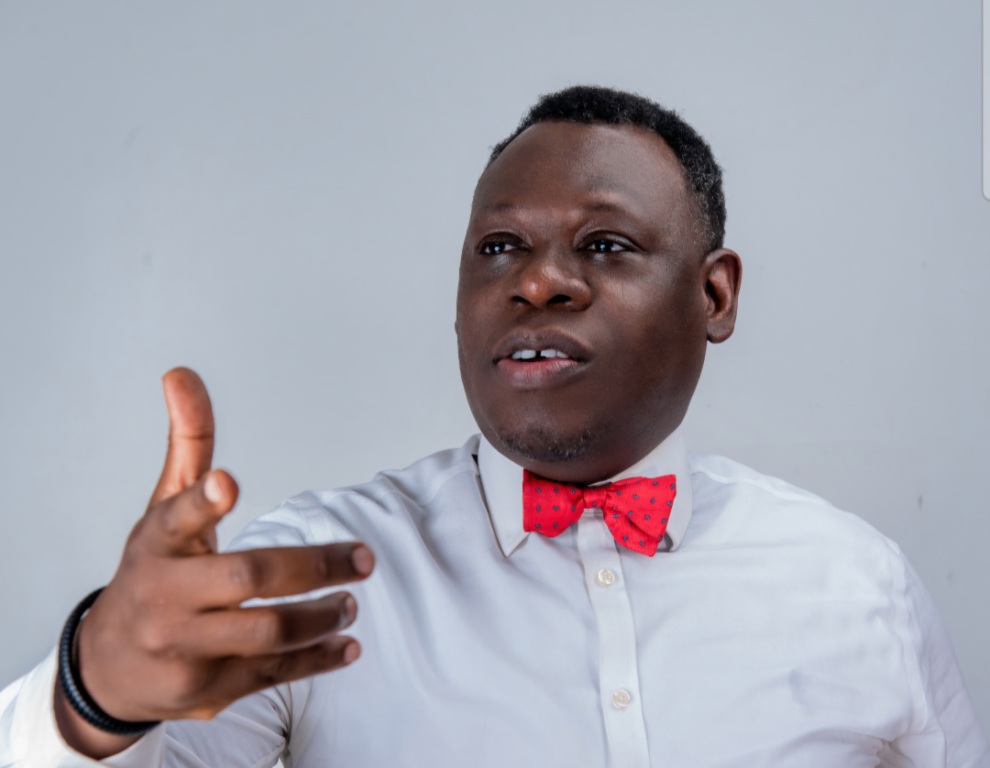
By Timi Olubiyi, PhD
Internet users are growing at an unprecedented rate, and in Nigeria, for instance, internet users have expressed concerns and frustration over the data price increase in recent times, with many feeling its negative impact on their budgets and mobile smartphone usage.
Major networks such as MTN, Airtel, and Glo have seen a close to 50 per cent increase in Nigerian mobile data prices, with no known alternative available. This shows the significance of data and internet usage, highlighting its role in the digital age and the rapid growth of data and content creation across Africa.
From mobile phone data and e-commerce activities to social media interactions and government services, vast amounts of information are being created daily, which is accessible through internet usage.
The economic and technological landscape of Africa has been undergoing significant evolution recently. The continent is inhabited by over 1.4 billion individuals, and a larger portion of them create, use, and feed on data— which is a digital transformation.
The convergence of rising mobile phone usage, enhanced internet accessibility, and a youthful, technologically adept demographic has positioned Africa at the forefront of global discussions around technology innovation and data generation.
Recently, the phrase “data is the new oil” has gained significant traction in discussions related to technology, business, and the digital economy. But it is public knowledge that when it comes to oil, its availability is limited to certain areas of the world.
On the other hand, tech giants like Google, Facebook, Netflix, Amazon, Microsoft, and Apple control most of the world’s data.
According to a study by Sandvine in 2021, these companies are responsible for about 57 per cent of global data flow, and they have all commodified data. The huge amount of data controlled by these mega-companies is bigger than most small businesses and corporations. But, anyway, this would be another story piece for another time.
In the view of the author, if we want to know if data is really the “new oil”, we need to first look at how it builds value. Data by itself is not useful, just like in the case of oil. Raw data, without any processing or analysis, is merely a collection of information that requires interpretation.
For instance, an online store might keep track of what customers do, like what links they click on, how long they stay on product pages, and what they bought in the past.
However, this data remains mostly useless until it undergoes processing, analysis, and transformation into actionable ideas. Business managers in Africa should follow this path and should adhere to a mindset of ‘facts superiority over opinion’.
As businesses expand, an increasing number of individuals express ideas regarding the actions to be undertaken. However, it is beneficial to employ a data-insight mentality. All company metrics can be tested, measured and improved upon.
It is important to note that business owners/managers must have real-time access to the most important data in their business. Understanding which Key Performance Indicators (KPIs) affect revenue and profit is significantly more crucial than the revenue and profit figures themselves.
When data is cleaned up and analysed, it becomes really useful. Similar to refining oil to produce petrol, diesel, and other products, processing data yields beneficial outcomes. This is where Google and Facebook shine. They have put a lot of money into technologies like machine learning and big data analytics that can turn huge amounts of raw data into personalised ads, recommendation engines, and models that can predict the future. In this way, they make money for both their users and their owners.
In Africa, the idea of “data as the new oil” is particularly appealing because it could help the continent skip ahead in the normal stages of economic growth. Mobile phones let African countries get around the need for landline infrastructure.
Similarly, data technologies could help African economies get past older, resource-heavy ways of growing, leading to new ideas and long-term growth in fresh ways. In agriculture, for instance, data analytics and satellite imaging can help farmers figure out how the weather will behave, get the most out of their crops, and make harvest supply lines work better. Data-driven solutions in healthcare, like electronic health records (EHRs) and predictive analytics, can help find diseases, control outbreaks, and make healthcare better.
In the same way, data-driven education platforms can give students personalised learning experiences and give teachers and managers useful information about how students are doing and what they need. More so, businesses could be data-driven by setting up special internal research units on data, where insights can be generated to improve on decision-making.
Looking ahead, there are evident similarities between data and oil; much like crude oil, data is valuable. Data is not a naturally occurring resource like oil; it is a by-product of human activity. Oil is a limited resource, whereas data is plentiful and perpetually increasing. Raw data must be processed and analysed to derive significant insights and facilitate informed decision-making.
This is where artificial intelligence (AI) is relevant. AI acts as the ultimate data refinery, enabling the conversion of extensive information into meaningful insights. In contrast to oil, which is extracted and processed by a limited number of firms, data is more extensively disseminated, including various stakeholders in its collection, analysis, and utilisation.
Anticipating the future, data will probably witness ongoing advancements in many domains because it is a strategic asset for business and economic growth. With it, people, organisations, and governments can make better decisions. Good luck!
How may you obtain advice or further information on the article?
Dr Timi Olubiyi is an entrepreneurship and business management expert with a PhD in Business Administration from Babcock University, Nigeria. He is a prolific investment coach, author, seasoned scholar, chartered member of the Chartered Institute for Securities and Investment (CISI), and a Securities and Exchange Commission (SEC)-registered capital market operator. He can be reached on the Twitter handle @drtimiolubiyi and via email: drtimiolubiyi@gmail.com, for any questions, reactions, and comments.
The opinions expressed in this article are those of the author, Dr Timi Olubiyi, and do not necessarily reflect the opinions of others.
-

 Feature/OPED5 years ago
Feature/OPED5 years agoDavos was Different this year
-
Travel/Tourism9 years ago
Lagos Seals Western Lodge Hotel In Ikorodu
-

 Showbiz2 years ago
Showbiz2 years agoEstranged Lover Releases Videos of Empress Njamah Bathing
-

 Banking7 years ago
Banking7 years agoSort Codes of GTBank Branches in Nigeria
-

 Economy2 years ago
Economy2 years agoSubsidy Removal: CNG at N130 Per Litre Cheaper Than Petrol—IPMAN
-

 Banking2 years ago
Banking2 years agoFirst Bank Announces Planned Downtime
-

 Sports2 years ago
Sports2 years agoHighest Paid Nigerian Footballer – How Much Do Nigerian Footballers Earn
-

 Technology4 years ago
Technology4 years agoHow To Link Your MTN, Airtel, Glo, 9mobile Lines to NIN



